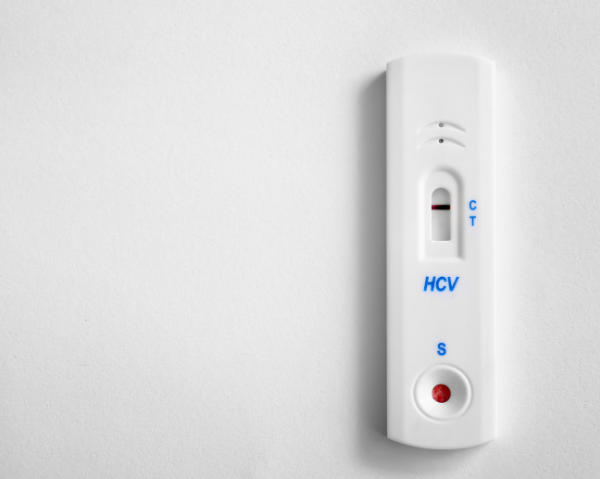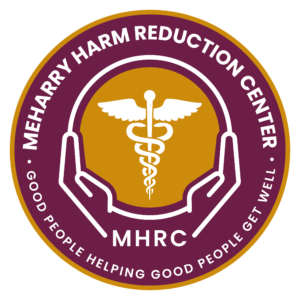MEHARRY HARM REDUCTION CENTER
OUR RESEARCH

CURRENT RESEARCH

Tennessee Harm Reduction Efforts at Advanced Data (THREAD)
is a partnership between Dr. Cooper at the Meharry Harm Reduction Center and Dr. Lesly-Marie Buer at Hellbender Harm Reduction. This project seeks to create an institutional review board and community engagement core tailored to research carried out with people who use drugs. As a part of this project, all syringe service programs in Tennessee will be provided with software and a standard set of indicators to collect. Meharry and Hellbender will analyze this data as well as run an annual point in time survey of all SSP participants in the state.
PrEP for People Who Use Drugs
In this CDC funded implementation research study we are examining barriers and facilitators to pre-exposure prophylaxis (PrEP) for HIV prescribing. The study is being carried out at four sites, two in Nashville and two in Memphis. The study is a partnership between Meharry Medical College, Vanderbilt University Medical Center, and the Tennessee Department of Health. Our practice partners include our own outreach team, StreetWorks, A Betor Way, and PEAS.


Hepatitis C Virus (HCV) and Buprenorphine Treatment Integration
HCV is experienced at much higher rates among people who use drugs than among the general population. In our clinic over 60% of patients have HCV. We are developing and testing a near same day test and treat protocol for our stationary clinic to ensure all our patients are being cured of HCV as a part of standard care in the addiction clinic.
Mobile HCV and Buprenorphine Treatment Integration
HCV rates are also very high among our mobile HOPE Clinic population. We are conducting an implementation science study to develop a protocol for near same day test and treat for HCV done entirely in the community.


Community Health Worker (CHW) Retention Study
Community Health Workers are an essential part of all services provided through the Meharry Harm Reduction Center. This qualitative study examines barriers and facilitators to hiring and retaining these workers. Findings are directly informing our own efforts to hire and retain CHWs, particularly those that have either lived or living experience with substance use, HIV, or sex work.
COMPLETED RECENT PROJECTS
Jail-Based Buprenorphine Treatment Evaluation
The Harm Reduction Center was contracted by the Tennessee Department of Health to evaluate the implementation of an MOUD program delivered in a rural jail in East Tennessee. To our knowledge this is the first such study of a jail based MOUD program in the southeast regions of the United States. Retention in the program was very high post release, and qualitative findings indicated high feasibility of implementing similar programs in other jail systems across the southeast.


Appalachian PrEP Linkage at Syringe Service Programs
Appalachian PrEP Linkage at Syringe Service Programs (APPLS) is an implementation science study examining barriers and facilitators to HIV testing and PrEP prescribing delivered in the Appalachian region of Tennessee. Findings indicated low knowledge of PrEP but a high willingness to use it among participants in the study.
Education, Motivation and Continuous Care-Management (EMC2)
Education, Motivation and Continuous Care-Management (EMC2) is a study of an intervention developed by Dr. Cooper and Dr. Richard Crosby at the University of Kentucky to increase both linkage to medication for opioid use disorder and a contraceptive consultation for women of childbearing age with an opioid use disorder in rural Appalachian Kentucky. Findings indicated that over 50% of women approached through the intervention attended their first MOUD appointment and nearly 50% went on to get a contraceptive consultation. Approximately 85% of the women that received the consultation went on to receive long-acting reversible contraceptive (LARC), the most effective birth control method available currently.


The Stress, Acceptance, and Antiretroviral Adherence Among Black Men with HIV
The Stress, Acceptance, and Antiretroviral Adherence Among Black men with HIV study examined the relationship of stress, measured both subjectively and through hair cortisol concentrations, and adherence to antiretroviral HIV medications. The relationship was mediated by the degree of acceptance of stress noted by patients. Also, the hair cortisol concentrations found in this sample were nearly three times higher than a general sample of Black people in the community, indicating high stress levels among Black men living with HIV.


